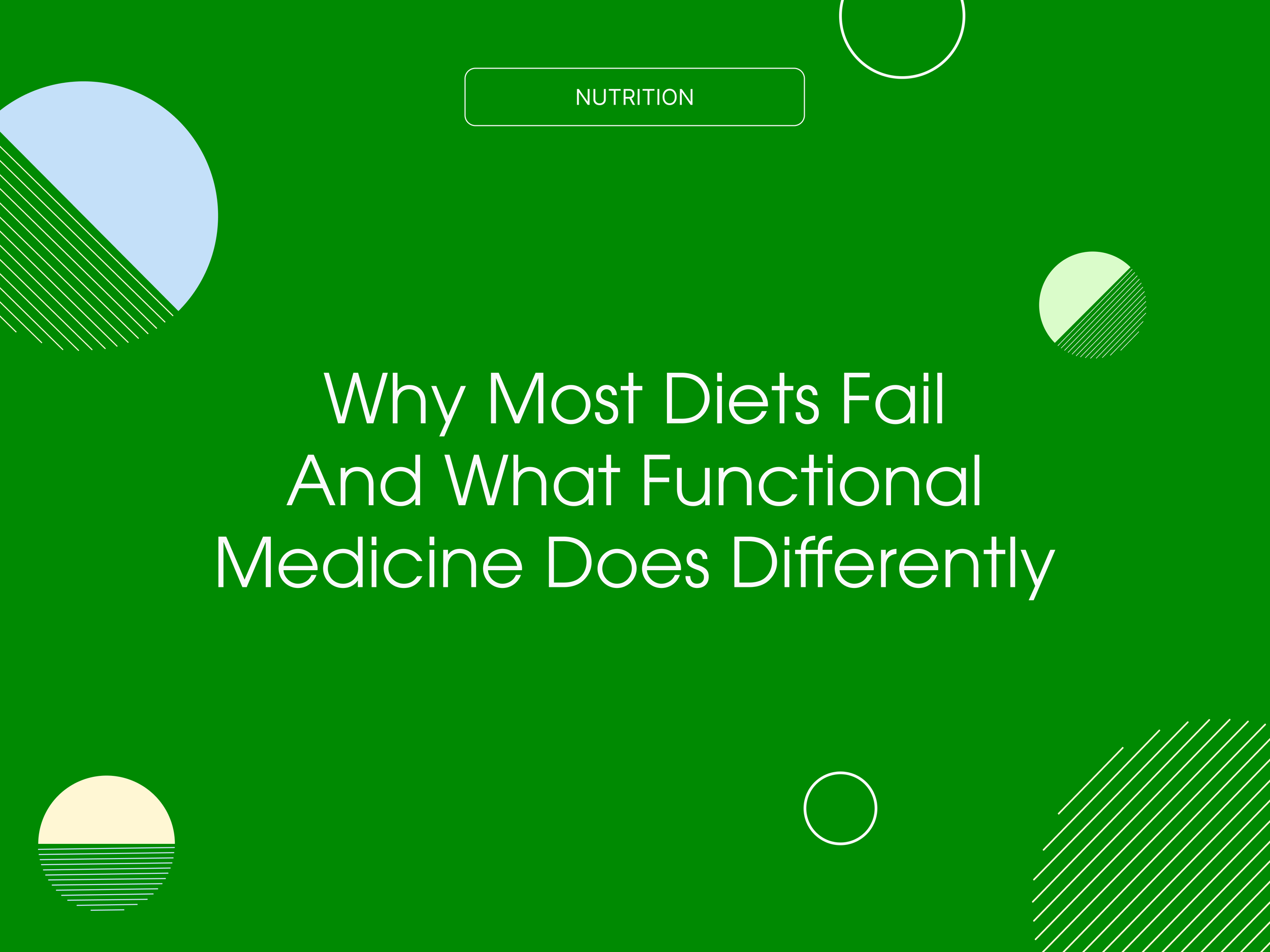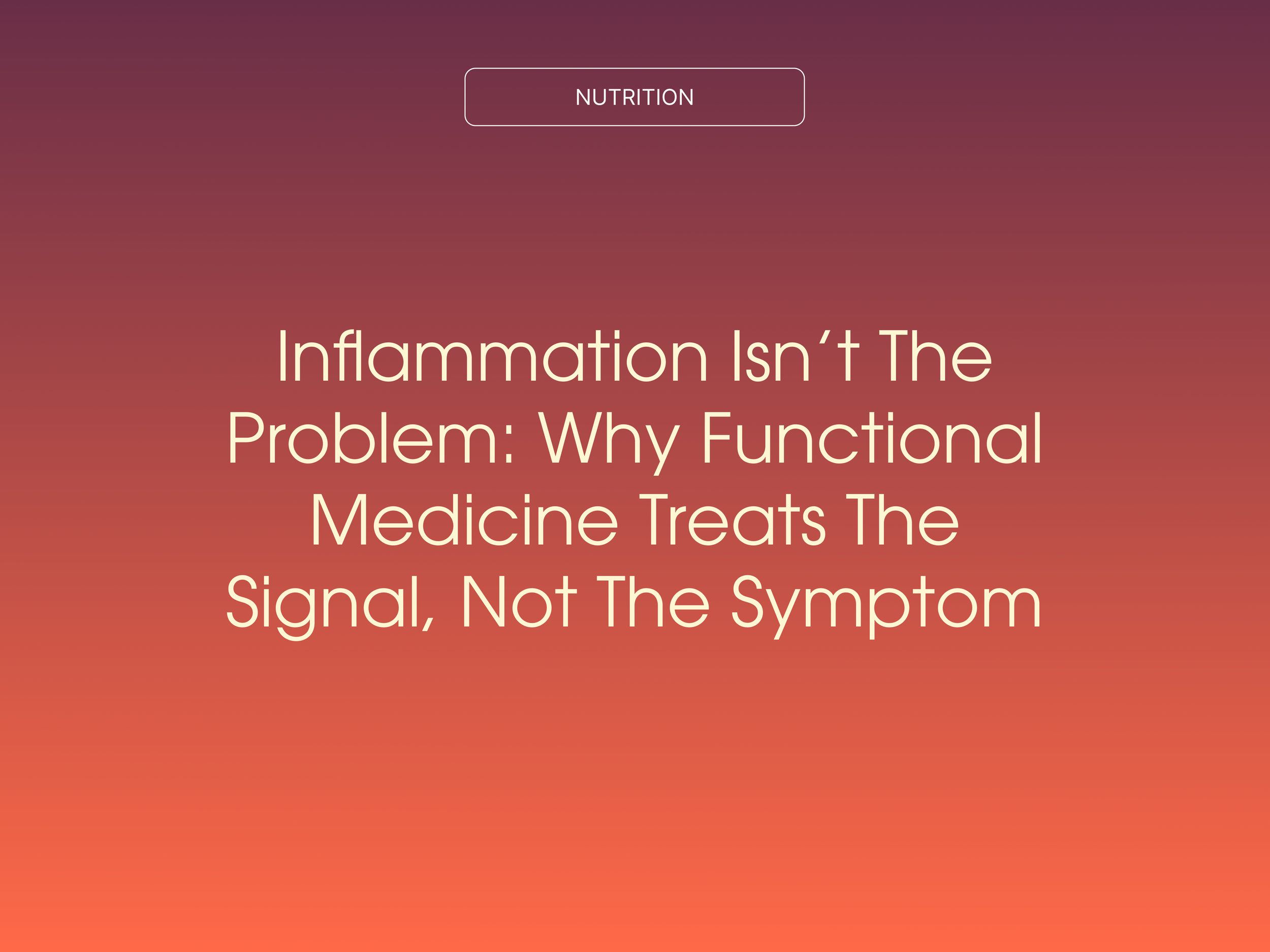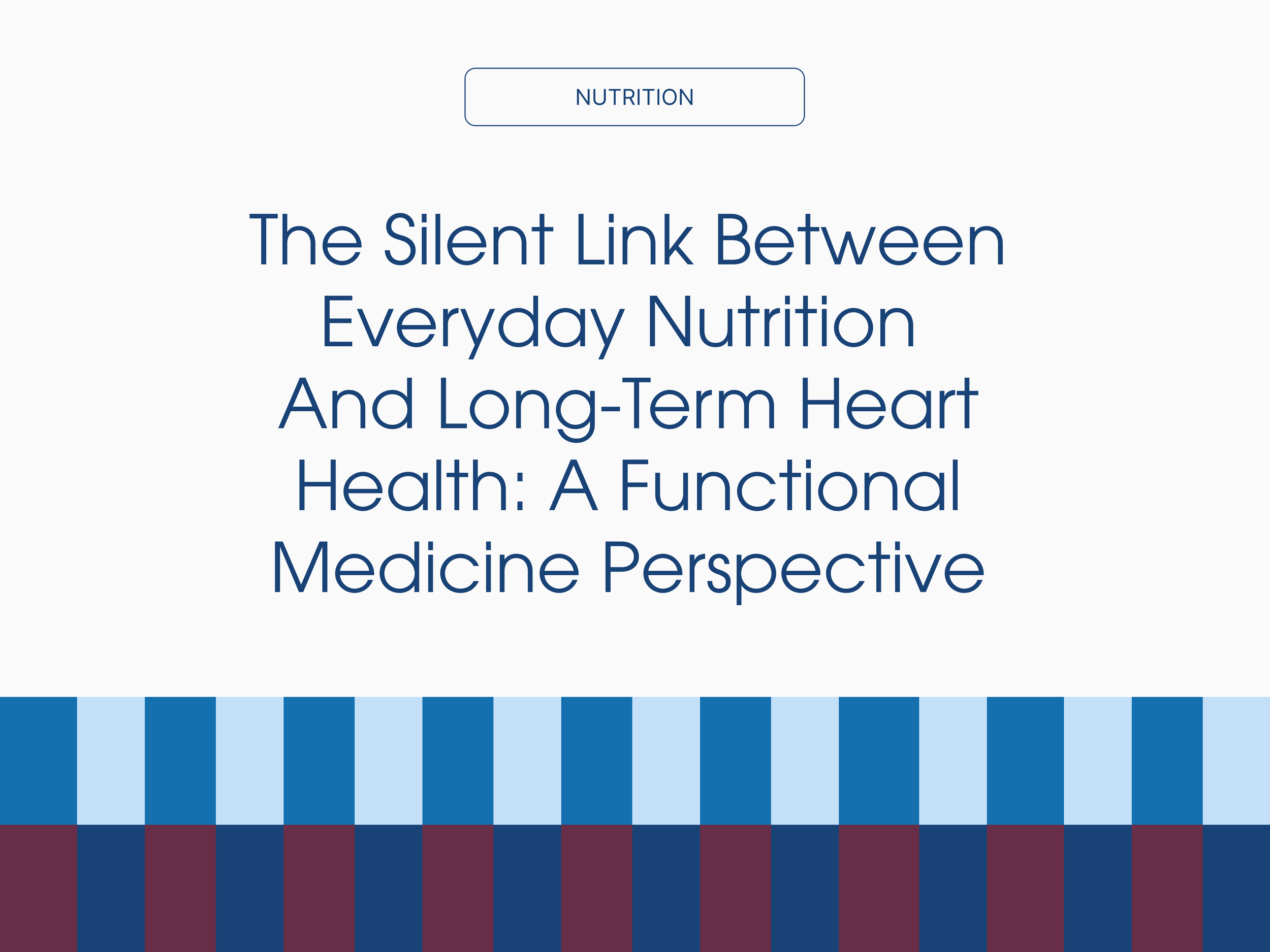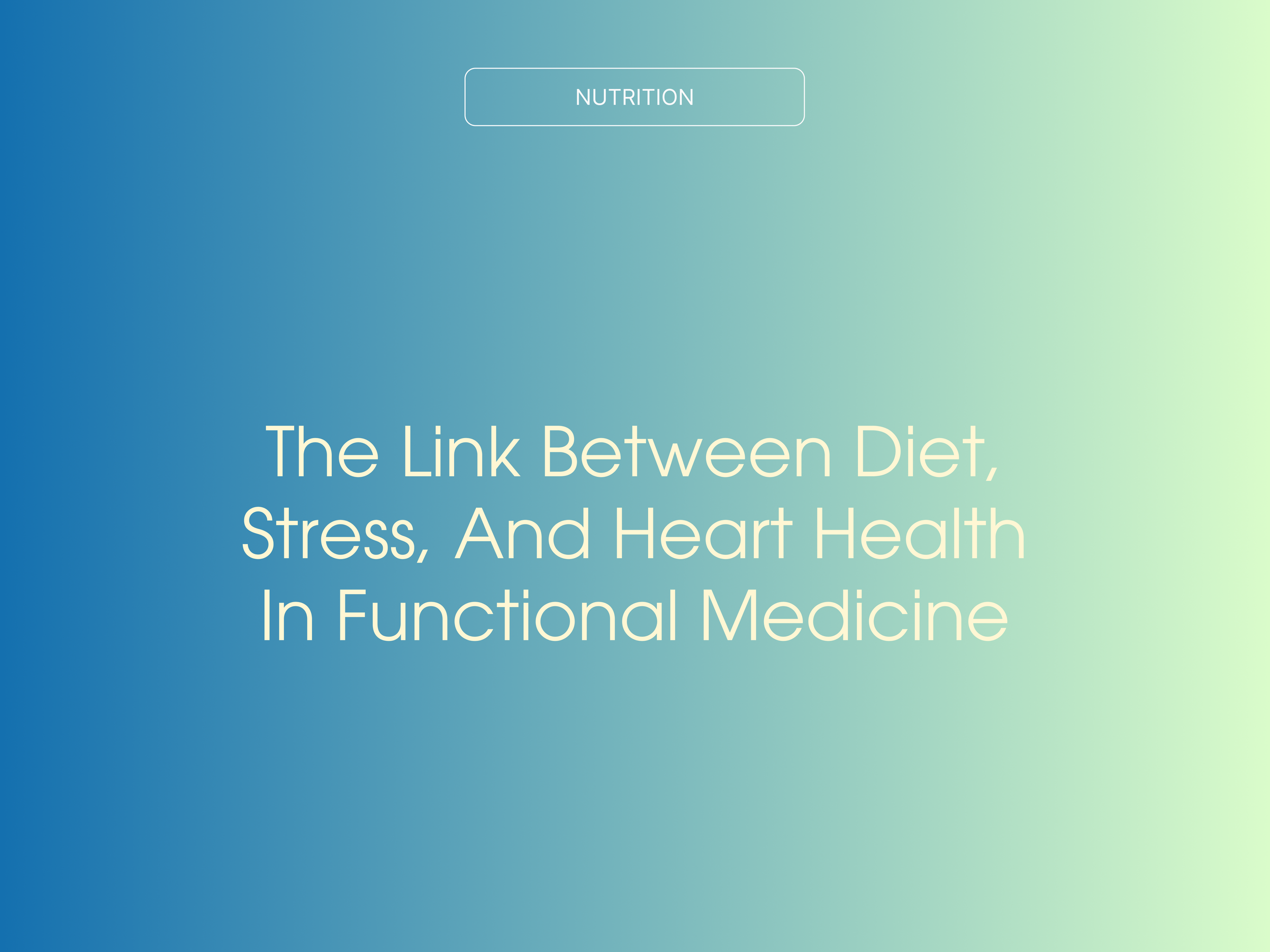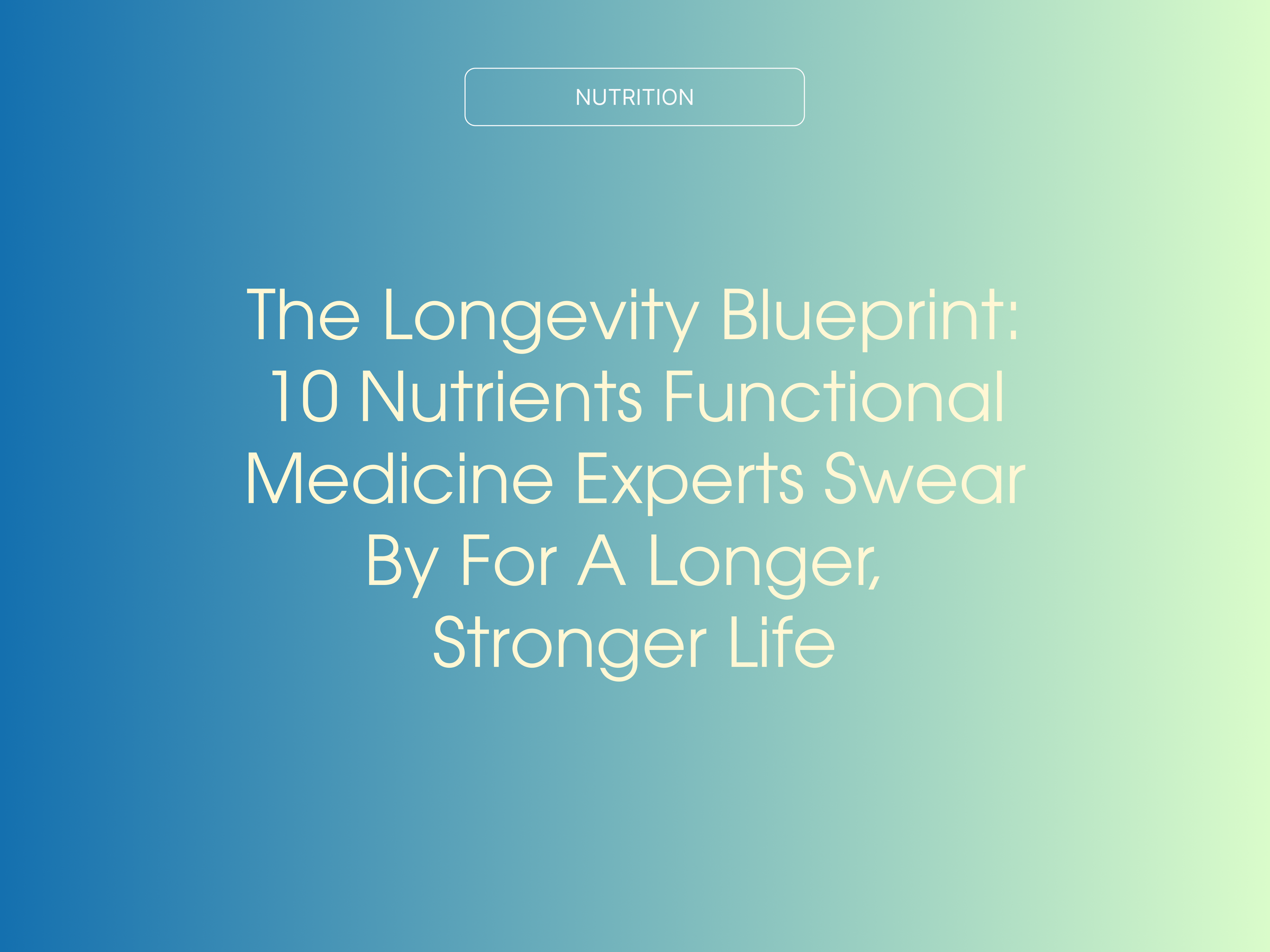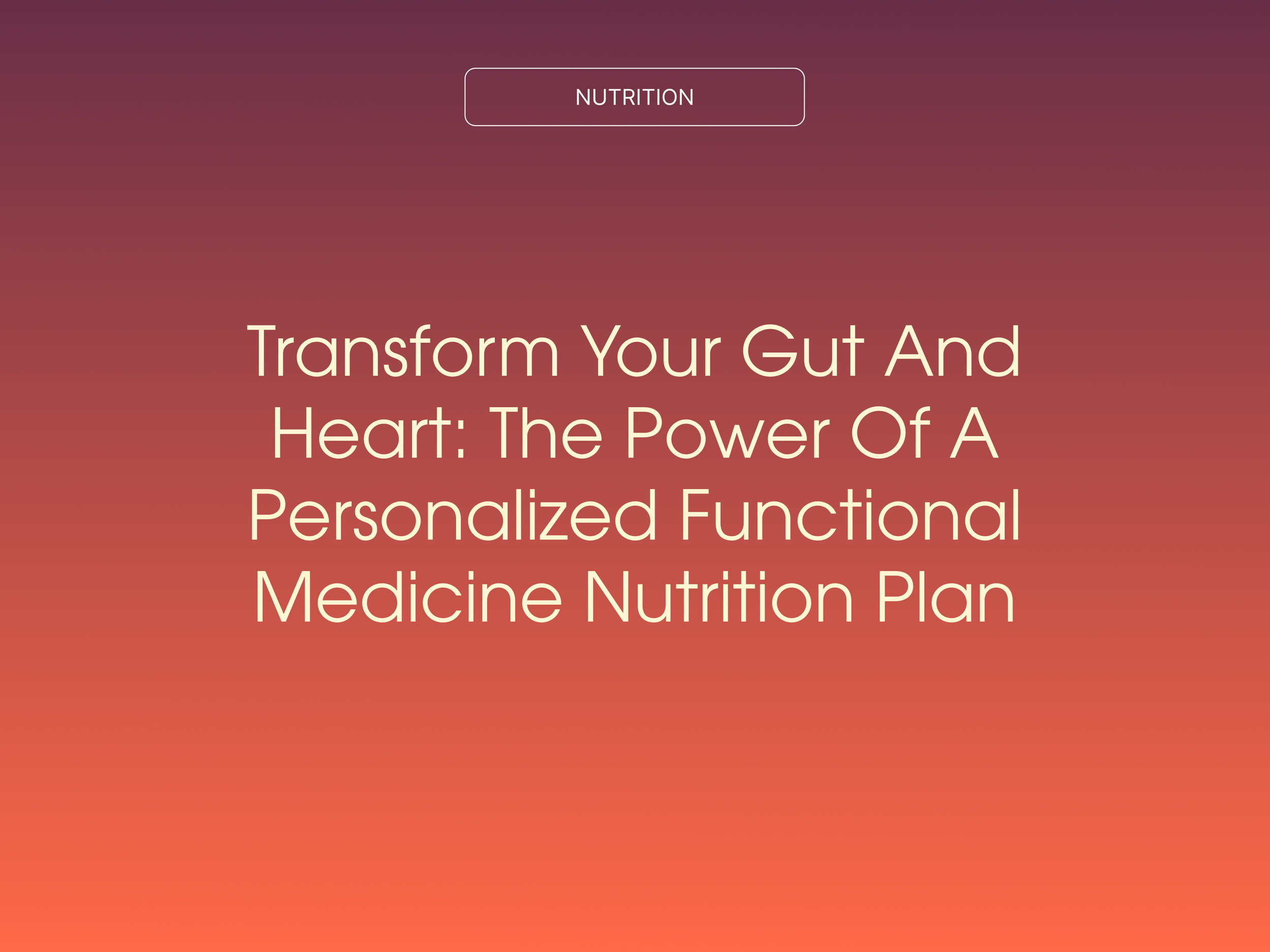Why Most Diets Fail and What Functional Medicine Does Differently
Most diets fail not because people lack discipline, but because they ignore biology. Functional medicine approaches nutrition by understanding metabolism, inflammation, gut health, and individual demand — not rigid rules. This article explores why conventional diet plans break down over time and how a systems-based approach creates sustainable change.
Inflammation Isn’t the Problem: Why Functional Medicine Treats the Signal, Not the Symptom
Inflammation isn’t something to eliminate — it’s something to understand. Functional medicine views chronic inflammation as a signal that deeper systems are under strain, not a standalone problem to suppress. This article explores how metabolism, gut health, and lifestyle factors drive inflammation — and why treating the root cause changes everything.
The Silent Link Between Everyday Nutrition and Long-Term Heart Health: A Functional Medicine Perspective
Nutrition is one of the most powerful tools in functional medicine for improving long-term heart health. By focusing on nutrient density, inflammation reduction, and gut-metabolic harmony, individuals can significantly improve cardiovascular resilience — long before symptoms appear.
The Link Between Diet, Stress, and Heart Health in Functional Medicine
Your heart isn’t just shaped by genetics—it’s shaped daily by how you eat, how you digest, and how your body responds to stress. In functional medicine, nutrition becomes one of the most powerful tools for both calming the stress response and protecting cardiovascular health.
The Longevity Blueprint: 10 Nutrients Functional Medicine Experts Swear By for a Longer, Stronger Life
Most people want to live longer, but what they truly want is to live well — with energy, clarity, and a body that still feels strong. At the Laguna Institute of Functional Medicine, we see every day how targeted nutrition can transform someone’s long-term health. The right nutrients don’t just influence energy and mood; they support heart health, metabolism, hormone balance, inflammation, and cellular repair.
This guide breaks down the 10 nutrients functional medicine experts rely on most to support healthy aging, stronger immunity, and long-term vitality — and why these essentials matter more than ever in a busy, modern lifestyle.
Transform Your Gut and Heart: The Power of a Personalized Functional Medicine Nutrition Plan
The right nutrition can transform how your gut, heart, and metabolism work together. In this post, Dr. Sanjay Bhojraj, a board-certified functional cardiologist and founder of the Laguna Institute of Functional Medicine, explains how a personalized functional medicine nutrition plan can restore balance, reduce inflammation, and protect long-term heart health. Drawing from his Well12 and GLP Rescue programs, he shares how evidence-based nutrition helps patients aged 35–65 reclaim energy and lasting wellness from the inside out.
Beyond Cholesterol: The New Markers Redefining Heart Health
Cholesterol tells only part of your heart’s story. New research reveals a deeper layer of insight — advanced markers that track inflammation, metabolism, and genetics to show how your cardiovascular system is truly functioning. Functional cardiology uses these data points not to chase lower numbers, but to personalize prevention and restore balance from within.
When Your Drink Is Also Your Doctor: The Rise of Microbiome & Functional Beverages
From sparkling prebiotic sodas to adaptogenic tonics, functional beverages are redefining what it means to “drink for your health.” Discover how microbiome science, herbal medicine, and smart nutrition are transforming everyday hydration into a new kind of functional therapy — where your drink becomes your doctor.
Your Fall Electrolyte Cheat Sheet
As the seasons change, so do the demands on your body. Autumn often brings cooler mornings, warmer afternoons, and fluctuating humidity levels that can challenge hydration balance in subtle ways. Many people think electrolytes are only important during summer workouts or after long runs in the heat, but maintaining optimal electrolyte levels is a year-round priority—and particularly important as we head into fall.
Could Taking Cocoa Extract Supplements Daily Prevent Age-Related Heart Disease?
When most people think of cocoa, they picture chocolate bars or hot cocoa on a winter day. But beneath the indulgence lies something far more powerful: cocoa extract, a concentrated source of plant compounds that may support cardiovascular health and longevity.
Six Popular Artificial Sweeteners Could Be Linked to Dementia
Artificial sweeteners are everywhere—soft drinks, protein powders, sugar-free snacks, even foods marketed as “healthy.” For decades, these sugar substitutes have been promoted as safe, calorie-free solutions for weight control and diabetes prevention. But new research raises troubling questions: could the very additives designed to help us live healthier actually be harming our brains?

